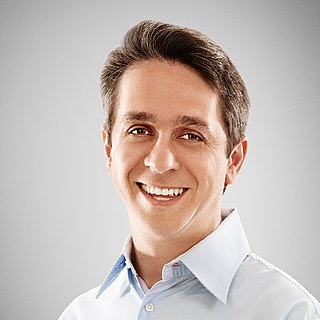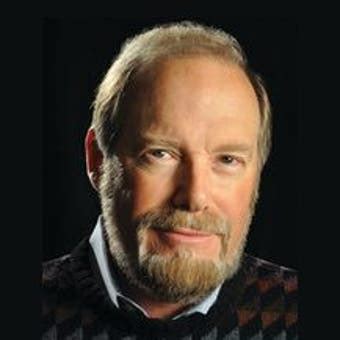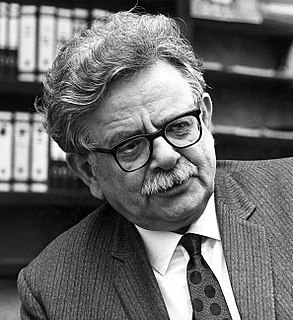A Quote by Alain de Botton
These inventors were elevating the formulation of entrepreneurial ideas to the status of a visionary activity. Though forced to justify their efforts in the pragmatic language of venture capital, they were at heart utopian thinkers intent on transforming the world.
Related Quotes
Oftentimes, churches are started by an entrepreneurial church plant visionary whom everybody follows, but he's not following anybody. Even though he's "accountable to a board," he's really not. Authority's a good thing, and if it's not forced upon you as a leader, then I suggest, strongly, that you go buy some.
I was encouraged to break all the rules but to take the best of philanthropy, the best of investing, and the best of development finance, and experiment with new ways to create this venture capital model of using philanthropy to back patient capital investments, and then build solutions that were measured in terms of the kind of impact and change they were making on people's lives and in the world, not just on the financial return.
The Oneida Perfectionists, along with some of the others, believed that feminism, and abolitionism, and other causes that they pursued in their own way without participating with other people outside of their communities, were all piecemeal reforms. That's what makes a utopian a utopian, this idea that they were going to create a whole new world from scratch.
In China, I witnessed forced abortions and forced sterilizations performed on women who were told that the children they were carrying were 'illegal'. I went with them when they were arrested and remained with them as they were subjected to mind-bending psychological torture. And I accompanied them as they went in tears to the local clinic to have their pregnancies aborted.
What distinguishes the historical social system we are calling historical capitalism is that in this historical system capital came to be used (invested) in a very special way. It came to be used with the primary objective or intent of self-expansion. In this system, past accumulations were 'capital' only to the extend they were used to accumulate more of the same.
At first he who invented any art that went beyond the common perceptions of man was naturally admired by men, not only because there was something useful in the inventions, but because he was thought wise and superior to the rest. But as more arts were invented, and some were directed to the necessities of life, others to its recreation, the inventors of the latter were always regarded as wiser than the inventors of the former, because their branches of knowledge did not aim at utility.
I was really interested in 20th century communalism and alternative communities, the boom of communes in the 60s and 70s. That led me back to the 19th century. I was shocked to find what I would describe as far more utopian ideas in the 19th century than in the 20th century. Not only were the ideas so extreme, but surprising people were adopting them.
I know the difference between venture capital[ism] and vulture capitalism. Venture capitalism is a good thing, comes in, gives that gap funding to help these companies get off and get started creating jobs, and work. But Mitt Romney and Bain Capital were involved with what I call vulture capitalism. And they walked into Gaffney and took over that photo album company for no other reason than to basically pick the bones clean. And those people lost their jobs.
I would have loved to invest in Salesforce when I was active in venture. I didn't know the founder, Marc Benioff, well enough, and he didn't really rely on venture capital, but I remember the first time I met him and got to talk about Salesforce when they were still private. I thought, 'Damn, that is going to be a huge company.'





































